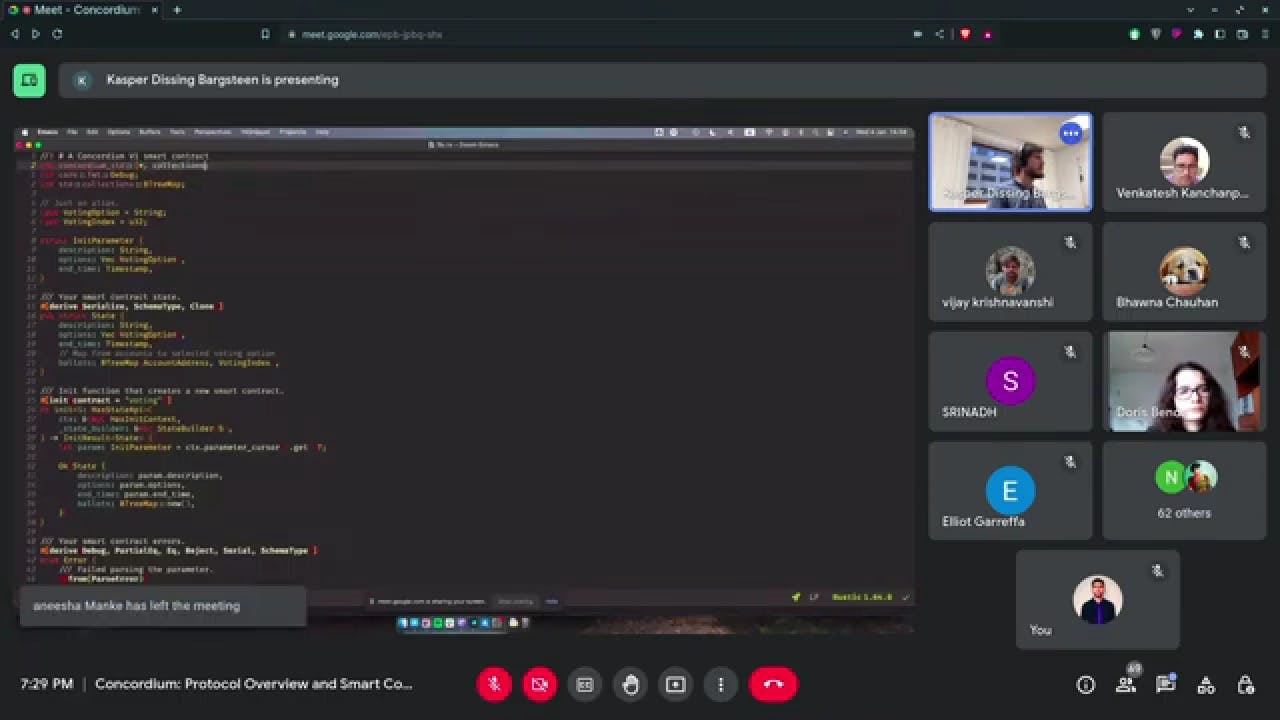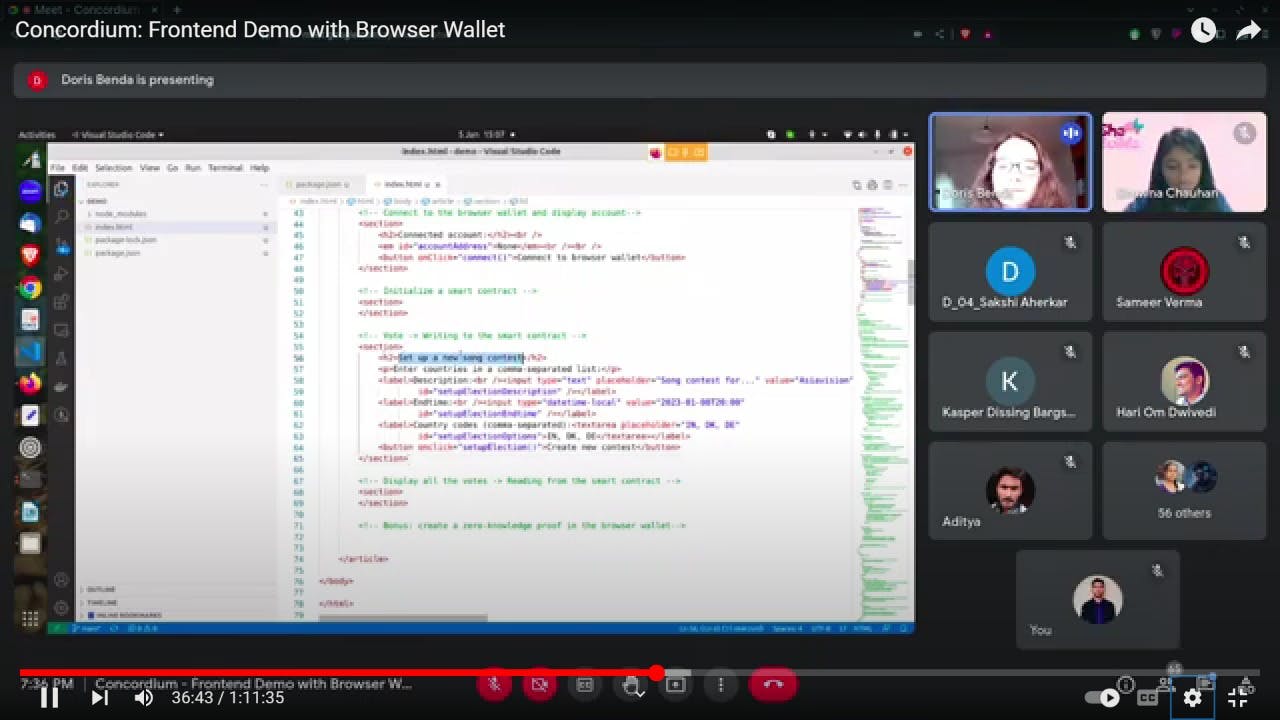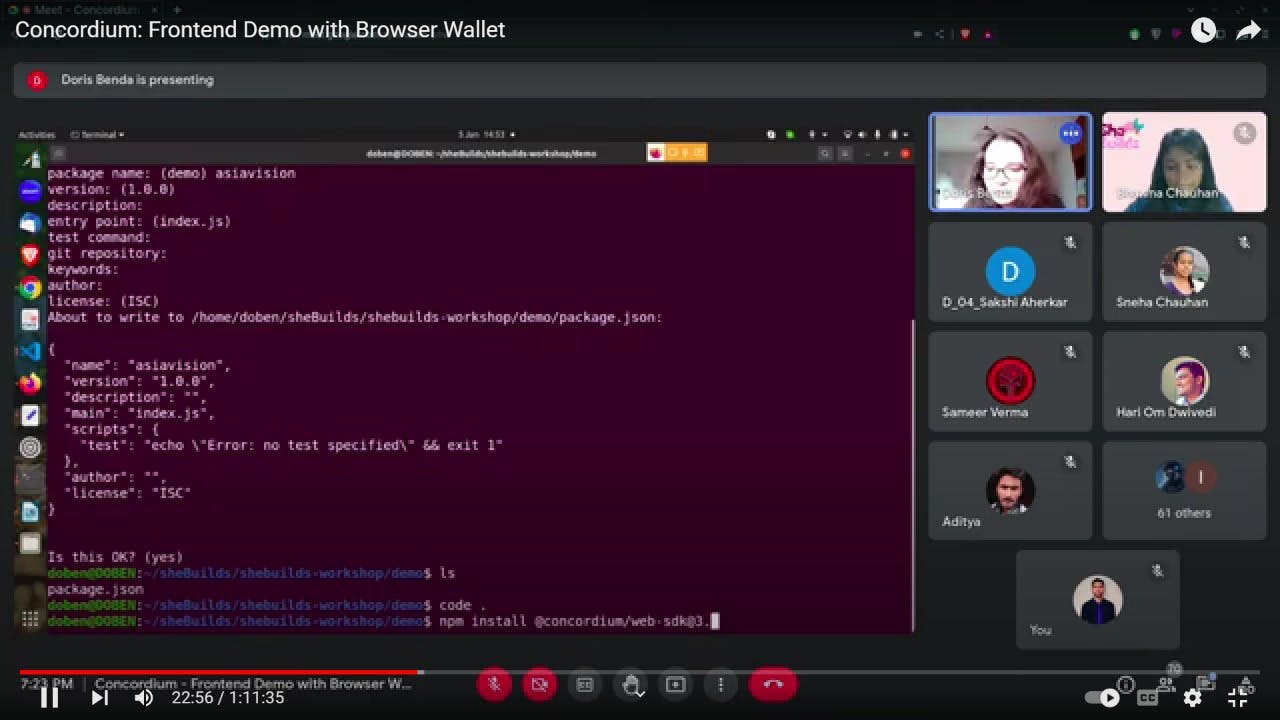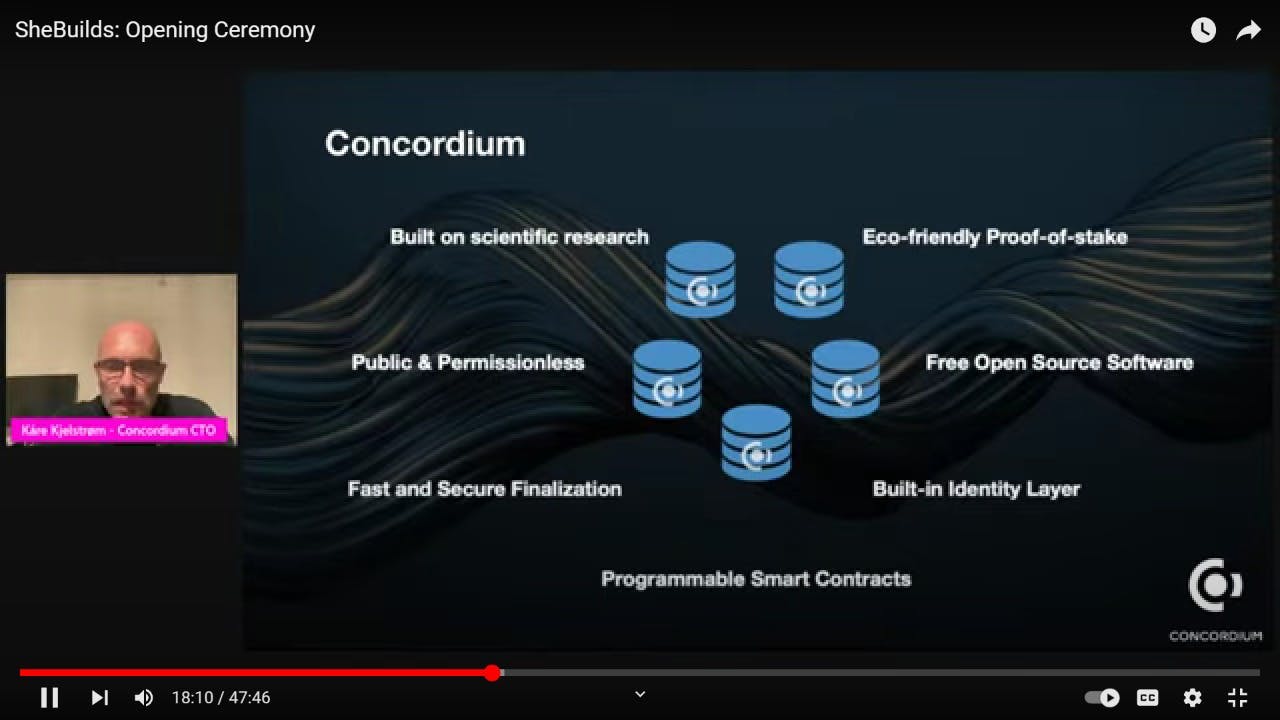Discovering the Power of Blockchain and DApps at Concordium Workshops
Recently, I had the opportunity to attend a series of workshops hosted by Concordium, a public layer 1 blockchain designed to balance privacy with accountability through its ID layer. The workshops were designed to provide developers with a comprehensive understanding of blockchain, smart contracts, and decentralized applications (DApps).
A blockchain is a distributed database that maintains a continuously growing list of records, called blocks, secured from tampering and revision. Each block contains a timestamp and a link to a previous block, forming a chain of blocks. This structure allows blockchain technology to provide a secure and transparent way to store and transfer data and assets.
Blockchains are decentralized, meaning that they are not controlled by a single entity but rather operate on a network of computers, often referred to as "nodes," that work together to validate and record transactions. This decentralized structure makes it difficult for any single entity to alter or manipulate the data on the blockchain, making it a secure and reliable way to store and transfer information and assets.
Blockchain technology is often used to create and maintain a distributed ledger, which is a record of transactions that is shared among a network of computers. This ledger can be used to track a wide range of transactions and interactions, such as financial transactions, supply chain management, and the execution of smart contracts.
Smart contracts are self-executing contracts with the terms of the agreement between buyer and seller being directly written into lines of code. They can be used to facilitate, verify, and enforce the negotiation or performance of a contract, making them a powerful tool for automating complex processes and reducing the need for intermediaries.
Decentralized applications (DApps) are applications that run on a blockchain and are typically composed of multiple components that work together to provide a specific functionality. They are decentralized in the sense that they are not controlled by a single entity, but rather operate on a decentralized network of computers. DApps can be built using smart contracts and can provide a wide range of functionality, such as facilitating secure and transparent transactions, automating complex processes, and enabling the creation of decentralized autonomous organizations (DAOs).
The workshops were conducted by experienced professionals in the blockchain industry, who provided in-depth explanations and practical examples to help developers understand the concepts being presented.
The workshops were structured in a way that allowed for interactive learning, with opportunities for attendees to ask questions and participate in hands-on exercises.
The content covered in the workshops was up-to-date and relevant to the current state of the blockchain industry, with a focus on the specific features and capabilities of the Concordium blockchain.
The goal of the workshops was not only to provide attendees with a solid foundation in blockchain and smart contract development but also to inspire them to explore new ways of using these technologies to solve real-world problems and create innovative applications.
On the first day, we were introduced to the setup for blockchain development by Casper from Concordium. He showed us how things worked on the Concordium network and even created a voting smart contract where different people could cast their votes without anyone knowing who made which vote. This demonstrated the power of blockchain technology to provide a secure and transparent way for individuals to participate in democratic processes.
The use of a smart contract for voting is just one example of how smart contracts can be used in decentralized applications (DApps). Smart contracts are self-executing contracts with the terms of the agreement between buyer and seller being directly written into lines of code. They can be used to facilitate, verify, and enforce the negotiation or performance of a contract, making them a powerful tool for automating complex processes and reducing the need for intermediaries

The following day, Dorris from Concordium continued the project and developed a decentralized application on the smart contract. It was a fantastic learning experience for me as I made my debut in the world of blockchain development. I was able to understand the various components that go into building a DApp and how they interact with each other and the blockchain.
The process of building a DApp typically involves designing and implementing a smart contract to define the business logic and rules of the application, as well as building a user interface (UI) to allow users to interact with the DApp. The smart contract is deployed to the blockchain, and the UI is connected to the blockchain through an application programming interface (API) to access the data and functionality provided by the smart contract. Working on a real-world DApp project like this can be a valuable learning experience for developers, as it provides a practical context for understanding the concepts and technologies involved in blockchain development.


On the third day, the CEO of Concordium showed us the future scope of Concordium and the possibilities of the projects that can be built on the platform. It was an eye-opening experience as I learned about the potential of this technology and the impact it could have on various industries. The CEO spoke about how Concordium's unique approach to balancing privacy with accountability could revolutionize industries such as finance, healthcare, and supply chain management.

The CEO's presentation likely provided attendees with a sense of the direction that Concordium is heading in and the types of projects that could be built on the platform. It's important for developers to stay up-to-date on the latest developments in the blockchain industry and to be aware of the potential impact of new technologies and platforms. This can help them to identify opportunities for innovation and to position themselves at the forefront of emerging trends in the industry.
Overall, these workshops were an invaluable learning experience for me and I am grateful to Concordium for providing the opportunity. The knowledge and skills I gained will surely be useful in my future endeavors as a blockchain developer. I am excited to see how Concordium's technology will shape the future and how it will be used to solve real-world problems. As a developer, I look forward to contributing to the growth of this innovative platform and being a part of the exciting journey ahead.
